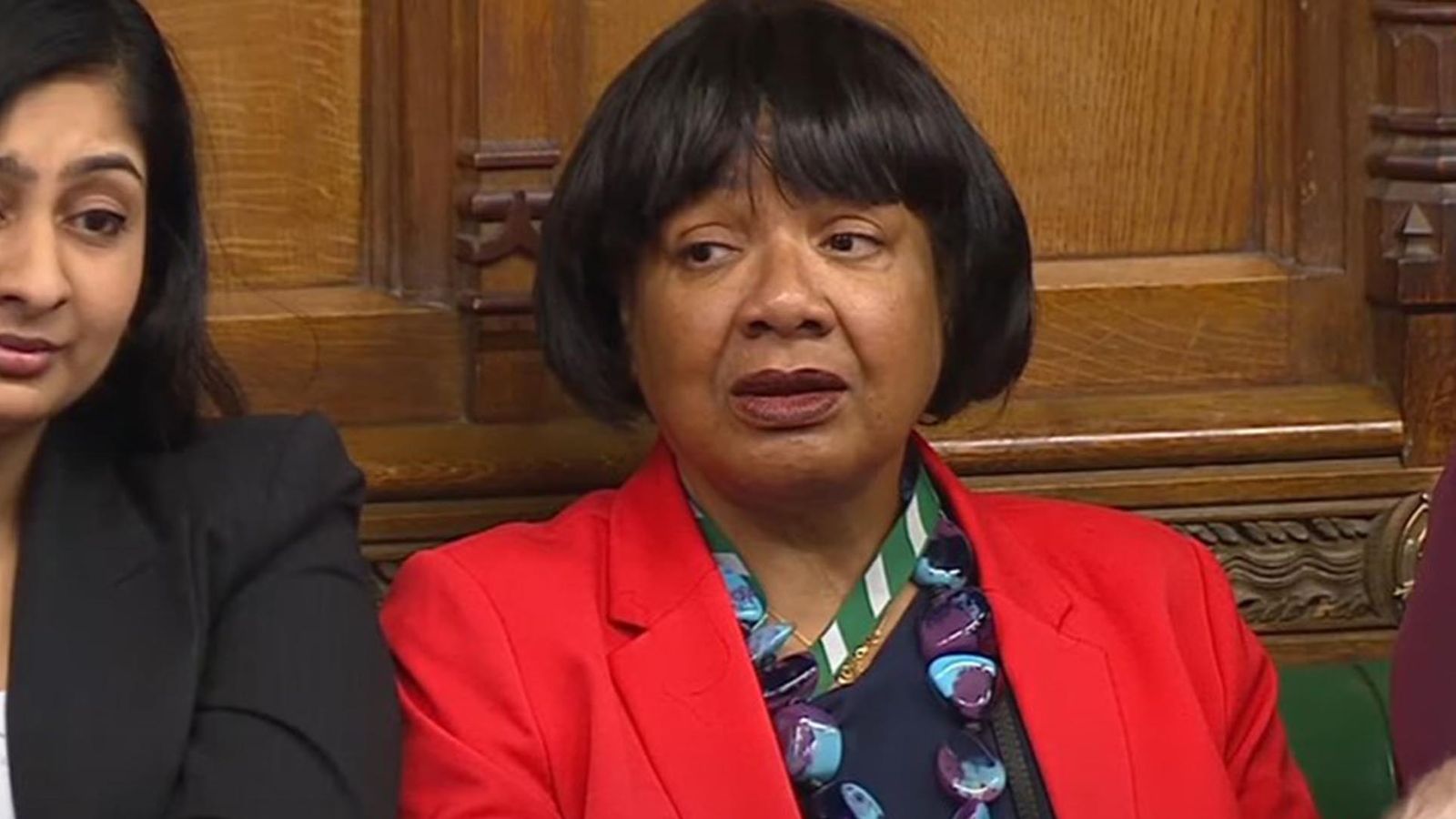NHS at 75: 90% of people don’t think the service will improve with almost half saying it will get worse

Almost half of people in Britain (47%) think that NHS care will get worse in the coming years, according to a new international poll by Ipsos for Sky News.
Just one in ten of those surveyed in the UK said they expect the quality of their healthcare to improve (10%), compared to 15% of Swedes and 22% of Spanish people.
The new figures suggest the public have little faith in the government’s ability to resolve the crisis facing the NHS on its 75th birthday.
A record 7.4 million people are currently waiting for elective treatment in England, including 371,000 who have been waiting more than a year.
A chronic shortage of beds, exacerbated by a crisis in social care, has left the NHS struggling to clear waiting lists and attend to urgent cases.
The issue has fed into a crisis of burnout among staff, with Sky News analysis finding that a surge in resignations relating to work-life balance lost the health service 10,000 staff last year.
The new polling shows that the public are feeling the impact of the crisis, with five out of every six UK respondents (83%) describing the health service as “overstretched” – more than in any other country surveyed.
As a result, satisfaction in the NHS has plummeted since the pandemic.
The share of people describing the quality of healthcare they have access to as “good” or “very good” fell from 74% in 2020 to just 48% this year, while the share describing their healthcare as “poor” or “very poor” has more than doubled to 22%.
As recently as 2018, the British public were more satisfied with their healthcare than people in any of the 16 countries polled. This year the UK came in sixth place, behind Sweden, Australia and the US.
“Brits have long been more worried than those in other countries about the future of their national healthcare service,” says Anna Quigley, research director at Ipsos.
“What has changed more recently is their view of the current standard of service provision. Historically, Brits were more positive than other countries about the care they were currently receiving, and this is where we are really seeing things change.
“From other data we collect, for example, on experiences of GP practices, we have seen that this is mainly linked to views around access.”
Read more: The parts of England with the highest and lowest life expectancies
The public are losing trust in the NHS
Doctors have warned that the UK’s primary care system is close to collapse, with Sky News analysis finding that GPs’ patient workloads have risen by a fifth since 2019.
A record 3,497 English GPs quit general practice in the year to March, including one in every eight newly-qualified family doctors.
The result has been lengthy waiting lists, with nearly one in five people (18%) forced to wait more than two weeks for an appointment in April – up from 11% in 2021.
Waiting times for elective care have also surged, including for those with urgent cancer referrals. Last year, almost 600,000 people were forced to wait longer than the recommended two weeks to see a cancer specialist – a thirteen-fold increase since 2010.
The survey results show that 76% of Britons think waiting times are “too long” and more than half say it’s not easy to get an appointment (52%) – in both cases, the third-highest share of any country polled.
Emergency care has also come under unprecedented strain, with A&E departments forced to “ration” care as a result of chronic bed shortages.
In May, 113,000 people spent more than 12 hours waiting in A&E, with 31,000 waiting more than 12 hours even after being told they would be admitted.
Analysis in February by the Royal College of Emergency Medicine estimated that 23,000 patients died last year due to waits over 12 hours in A&E departments.
The crisis has undermined Britons’ confidence in the ability of the NHS to offer high-quality care. Less than half of those surveyed by Ipsos (46%) said they trust the health service to provide them with the best treatment, down from around two-thirds in previous years.
That’s the sharpest fall in trust of any country surveyed.
Waiting lists have started falling in other countries
During the pandemic, health services around the world sought to free up beds and staff by delaying elective procedures. The result was an enormous backlog of care, from cataract surgeries to hip replacements, that they are now battling to bring down to acceptable levels.
Yet something different has been happening in England. The elective waiting list never went through a period of levelling off, as in Sweden, or began falling back to pre-pandemic levels, as in Ireland. Instead, it has risen relentlessly.
The result has been a continuous increase in waiting times since the pandemic began, long after waits for treatment began falling in other countries.
Tim Gardner, a senior policy fellow at the Health Foundation think tank, says that the international survey results “really aren’t surprising”.
“We went into the pandemic with some of the lowest numbers of doctors, nurses, hospital beds and key bits of diagnostic equipment of any country in Europe, so it’s not a huge surprise that our health service is struggling more than most to recover from the pandemic.
“If we had kept pace with the per person funding in Germany, we would currently be spending around £39bn a year more on our health system.”
The NHS is still core to British identity
Recent polling by Ipsos for the Health Foundation found that 80% of Britons think the NHS needs more funding, up from 72% a year ago.
Two in five people said that underfunding (40%) and staff shortages (38%) were major causes behind the NHS crisis, with more than a third (35%) also pointing to “poor government policy” as a key factor.
By contrast, just 13% blame increased immigration, while 8% point to the recent strikes as a reason for the health service’s poor performance.
“The public are clearly pretty dissatisfied with the standards of the service they’re receiving at the moment,” says Gardner.
“But we also see that they’re really concerned about the pressures and workload of NHS staff. So, they’re not necessarily blaming the health service – support for the NHS’s founding principles is really rock-solid.”
More than half of respondents (54%) said that the NHS makes them “proud to be British”, while 72% agreed that the NHS is “crucial” to British society.
When asked what specifically makes them proud of the NHS, more than half (55%) pointed to the fact that it is free at the point of use or funded by taxation.
However, just one in four respondents (25%) said they expect all NHS services that are currently free at the point of use to still be free in ten years’ time.
A Department of Health and Social Care spokesperson said: “The NHS will always be free at the point of use and never be for sale. Cutting waiting times is one of the government’s top five priorities and we are making progress on our plans to recover and improve services, backed by record funding.
“The NHS has already reduced the number of patients waiting more than 18 months by over 90% since the September 2021 peak and virtually eliminated two-year waits for treatment, despite more people coming forward for treatment.
“The NHS has published the first ever Long Term Workforce Plan, backed by over £2.4 billion government funding to deliver the biggest training expansion in NHS history, with hundreds of thousands more staff over the next 15 years.”
Click to subscribe to the Sky News Daily wherever you get your podcasts
Can we mend the NHS? Watch a special programme at 1800 with Mark Austin on Sky News
The Data and Forensics team is a multi-skilled unit dedicated to providing transparent journalism from Sky News. We gather, analyse and visualise data to tell data-driven stories. We combine traditional reporting skills with advanced analysis of satellite images, social media and other open source information. Through multimedia storytelling we aim to better explain the world while also showing how our journalism is done.

